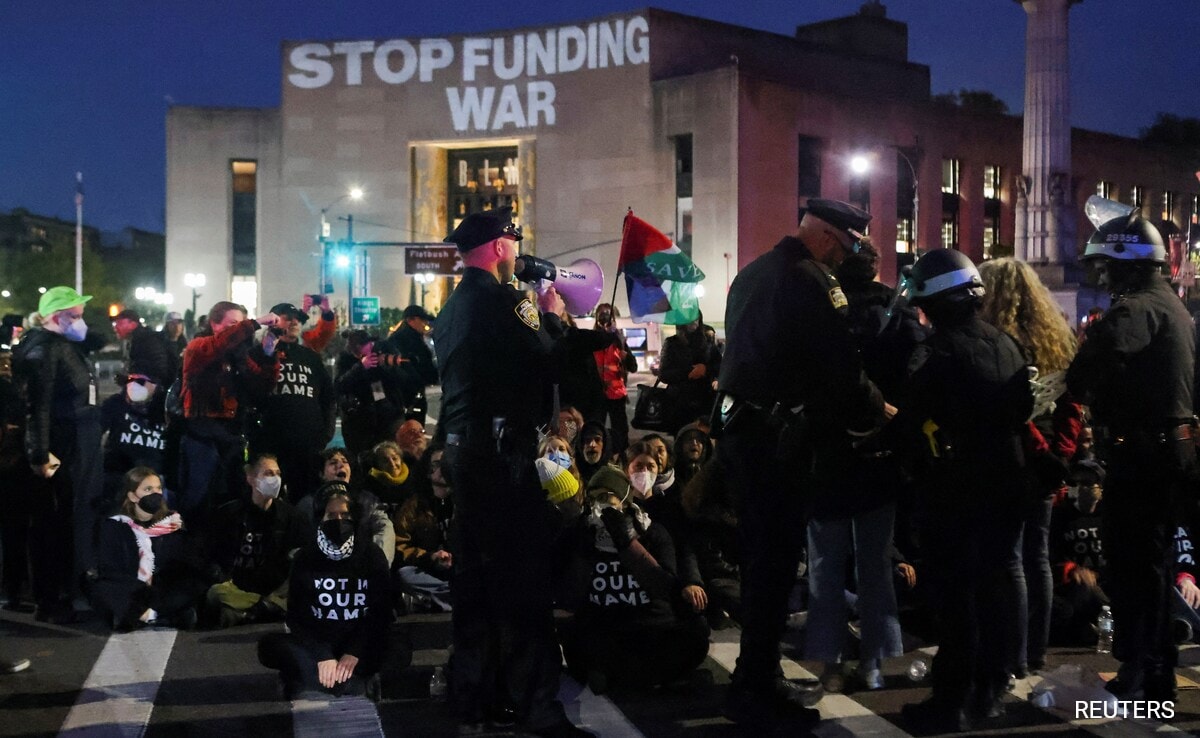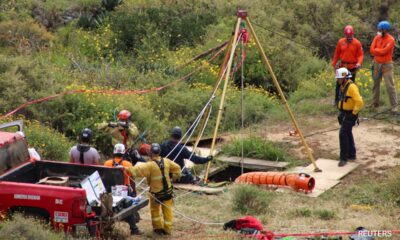Students from several other universities in the US are holding rallies
The pro-Palestinian camps at Columbia University in the US are still active, despite 108 students being arrested and three suspended last week. Contrary to what the police had hoped to achieve with their search of the encampments, the crackdown has simply fanned the flames of dissent.
Students from several other US universities have followed suit, setting up their own encampments, occupying buildings and holding rallies.
Amid growing demands for Israel’s divestment and a ceasefire in Gaza, prestigious schools such as Yale, the Massachusetts Institute of Technology (MIT), and New York University (NYU) have attempted to quell these protests, but are failed to do so.
Pro-Palestinian demonstrations are also underway at universities such as UC Berkeley and the University of Michigan.
Tensions remain high at Columbia University as students refuse to comply with demands to leave their encampments. Negotiations to reach an agreement between the government and the demonstrators have failed.
As a result, authorities have announced that classes will be switched to a hybrid learning mode until the end of the spring semester, which ends next week.
These protests catalyzed the eruption of student-led pro-Palestinian movements across the country.
At New York University, 133 protesters were taken into custody after allegedly throwing bottles at police who were tasked with clearing the encampments. They have since been released with a summons to appear in court on charges of disorderly conduct.
Byul Yoon, a law student at NYU, calls the arrests “outrageous” and asks in exasperation, “Why aren’t we allowed to be here?” Why are we not allowed to express ourselves?’.
She echoed the protesters’ demands, saying: “We are here to remain present and demand that the university divest itself from arms companies and from the Israeli occupation.”
MIT student Quinn Perian dug into the school’s involvement in the violence unfolding in Gaza, explaining: “They [MIT] had allocated more than $11 million in investments over the past decade for projects directly related to the Israeli Ministry of Defense. MIT builds the weapons that Israel and the Israeli military use to terrorize and bomb Palestinians in Gaza.”
Malak Afaneh, a student and protest organizer from UC Berkeley, echoed the demonstrators’ determination, claiming, “Frankly, we will stay here until we achieve divestment. We are willing to run the risk of suspension. We are willing to risk deportation. I am willing to risk arrest.”
At Yale University, demonstrators refused negotiations with the government, which asked them to end the demonstrations, leave the camps and meet with the school’s administrators. After defying several warnings, the government allowed police to clear encampments. About 60 protesters, 47 of whom were students, were arrested.
Harvard University also took preventative measures by locking most gates of the famed Harvard Yard and limiting entry to those with school identification. Signs were also placed warning against setting up tents or tables without permission. Despite this, camps have been set up and protests are ongoing.
Following this, the student group ‘Harvard Undergraduate Palestine Solidarity Committee’ was suspended for violating university policy.
It is unlikely that the protests will be dismissed anytime soon. Resistance continues to rise as every attempt to suppress protesters leads to more disillusioned individuals joining the pro-Palestinian cause.














